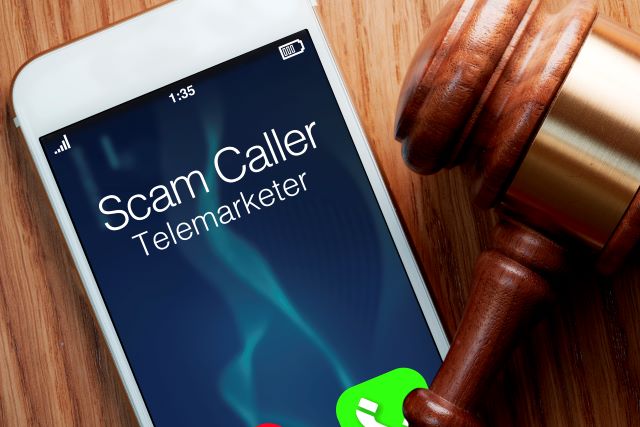One of the tell-tale signs of a scam is when the person on the other end of the phone refuses to disclose information to you such as the name of the creditor they work for, or the exact amount of money you owe. If you receive a call from someone claiming to be from a collections agency or debt collector, yet they refuse to provide you with this information, beware.

Legally, the company does have five days from the initial point of contact to send you a written notice regarding your debt; so you can look out in the mail for that notice after you receive a phone call, and that should help you confirm whether or not the call was legitimate.
Another sign that the so-called debt collector may be a scammer is if they pressure you to pay money via a money transfer or prepaid card. These forms of payment are often untraceable, making it very difficult (or downright impossible) for you to get your money back if they were a scammer.
If a “debt collector” says they will reveal your debts to your employer, your family, or your friends, they are more than likely a scammer trying to intimidate you into giving them money. Legitimate debt collectors should not make such threats.
A legitimate debt collector will also most likely NOT be touting a “new government program” that can help bail you out of your debt. So be careful if the person contacting you is claiming to know of such a program.
When someone contacts you claiming to be a debt collector or collections agency: ask for the name of their company, the street address of the company, the name of the creditor, the exact amount of money that is owed, and for a call-back number.
The person should be able to provide you with all of that information. As a general rule of thumb, you should not pay anyone claiming to be a debt collector unless they can provide you with all of that information.

If you gave private information to someone who you suspect may be a scammer – or if you gave money to someone you suspect may be a scammer – there are several measures you can take. To start, if you paid using a traceable source (i.e. a credit card) you can call your credit card company and/or bank and alert them of the possible scam.
You should also check all three of your credit reports and put special alerts and/or freezes on your credit. Contact each credit bureau individually (or visit their websites) for details.
Finally, you can submit a complaint with the Federal Trade Commission or contact the Nevada Attorney General’s Office, or that of your state.
There do exist legal, debt settlement companies that can help you come up with viable solutions to settling your debt.
However, these companies aren’t magicians, and there are limits to what they can do. It’s also important to remember that debt settlement companies are just one of several avenues you can take. It’s best to speak with an attorney to explore all of your options.